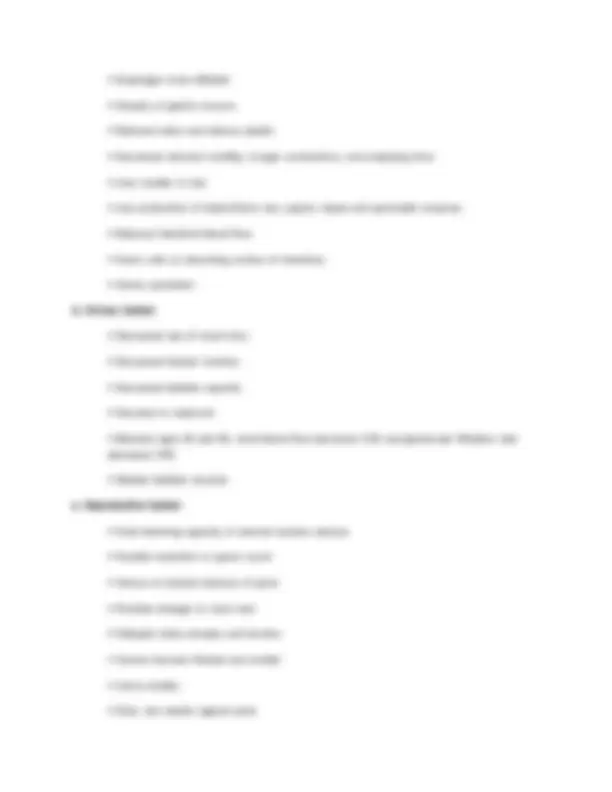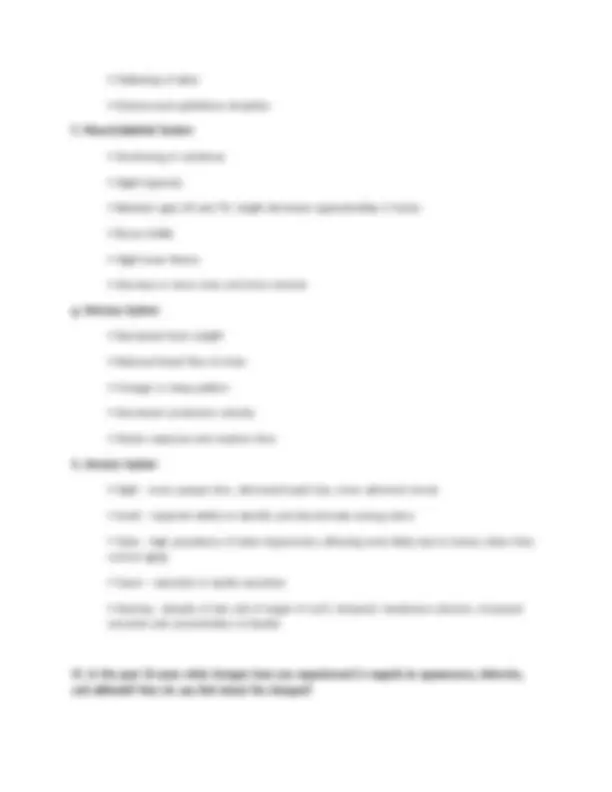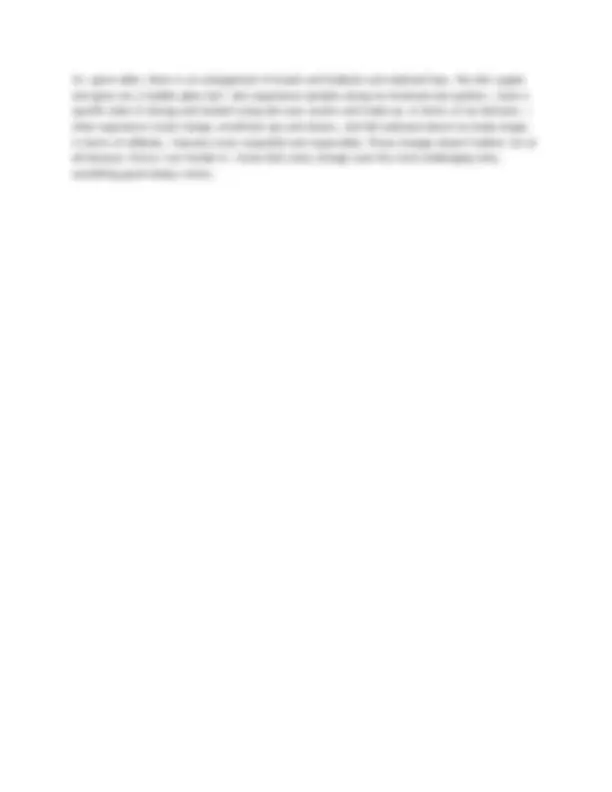





Study with the several resources on Docsity

Earn points by helping other students or get them with a premium plan


Prepare for your exams
Study with the several resources on Docsity

Earn points to download
Earn points by helping other students or get them with a premium plan
Community
Ask the community for help and clear up your study doubts
Discover the best universities in your country according to Docsity users
Free resources
Download our free guides on studying techniques, anxiety management strategies, and thesis advice from Docsity tutors
An overview of the physiological changes that occur as a result of aging, focusing on the effects on different body systems and appearance. Topics include crystallized and fluid intelligence, immunosenescence, presbycusis, presbyesophagus, presbyopia, and age-related changes to various body systems such as the respiratory, cardiovascular, gastrointestinal, urinary, reproductive, musculoskeletal, nervous, and sensory systems. The document also discusses personal experiences with aging and attitude towards the changes.
What you will learn
Typology: Exercises
1 / 5

This page cannot be seen from the preview
Don't miss anything!




I. Definition of Terms.
III. List the effects of aging on different body systems : a. Respiratory System ⦁ PO2 reduced as much as 15% between ages 20 and 80 ⦁ Loss of elasticity and increased rigidity ⦁ Decreased ciliary action ⦁ Forced expiratory volume reduced ⦁ Blunting of cough and laryngeal reflexes ⦁ By age 90 years, approximatelt 50% increase in residual capacity ⦁ Alveoli fewer in number and larger in size ⦁ Thoracic muscles more rigid ⦁ Reduced basiliar inflation b. Cardiovascular System ⦁ More prominent arteries in head, neck and extremities ⦁ Aorta becomes dilated and elongated ⦁ Valves become thicker and more rigid ⦁ Stroke volume decreases by 1% per year ⦁ Heart pigmented with lipofuscin granules ⦁ Less efficient O2 utilization ⦁ Crdiac output decreases ⦁ Resistance to peripheral blood flow increases by 1% per year ⦁ Blood pressure increases to compensate for increased peripheral resistance and decreased cardiac output ⦁ Less elasticity of vessles c. Gastrointestinal System ⦁ Decreased taste sensation ⦁ Decreased esophageal motility
⦁ Flattening of labia ⦁ Endocervical epithelium atrophies f. Musculoskeletal System ⦁ Shortening of vertebrae ⦁ Slight kyphosis ⦁ Between ages 20 and 70 , height decreases approximatley 2 inches ⦁ Bones brittle ⦁ Slight knee flexion ⦁ Decrease in bone mass and bone mineral g. Nervous System ⦁ Decreased brain weight ⦁ Reduced blood flow to brain ⦁ Changes in sleep pattern ⦁ Decreased conduction velocity ⦁ Slower response and reaction time h. Sensory System ⦁ Sight - more opaque lens, decreased pupil size, more spherical cornea ⦁ Smell - impaired ability to identify and discriminate among odors ⦁ Taste - high prevalence of taste impairment, althouhg most likely due to factors other than normal aging ⦁ Touch - reduction in tactile sensation ⦁ Hearing - atrophy of hair cell of oirgan of cortI, tympanic membrane sclerosis, increased cerumen and concentration of keratin IV. In the past 10 years what changes have you experienced in regards to appearance , behavior , and attitude? How do you feel about the changes?
As I grew older, there is an enlargement of breast and buttocks and widened hips. My skin supple and gives me a healthy glow but I also experience pimples along my forehead and jawline. I took a specific style of drssing and started using skin-care creams and make-up. In terms of my behavior, I often experience mood swings, emotional ups and downs, and felt awkward about my body image. In terms of attitude, I become more respectful and responsible. Those changes doesn't bother me at all because I know i can handle it. I know that every change even the most challenging ones, something good always comes.